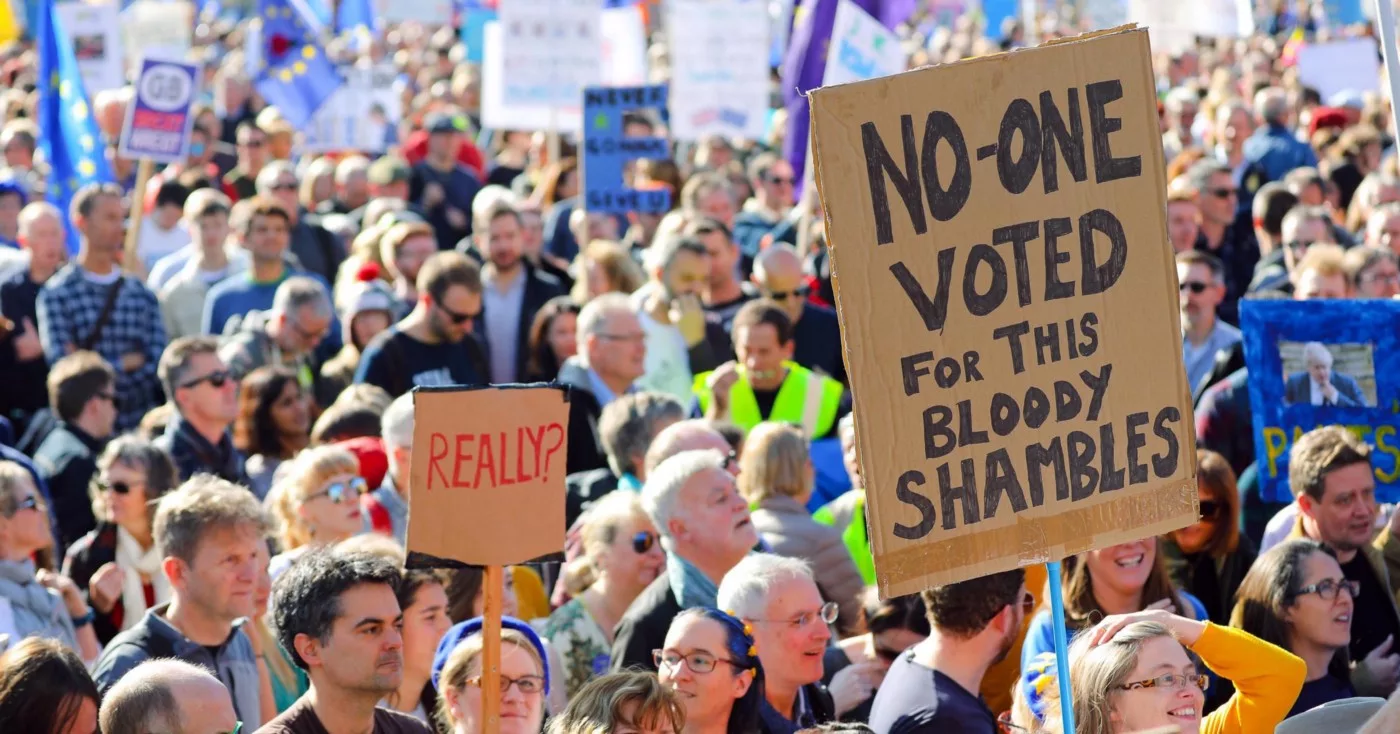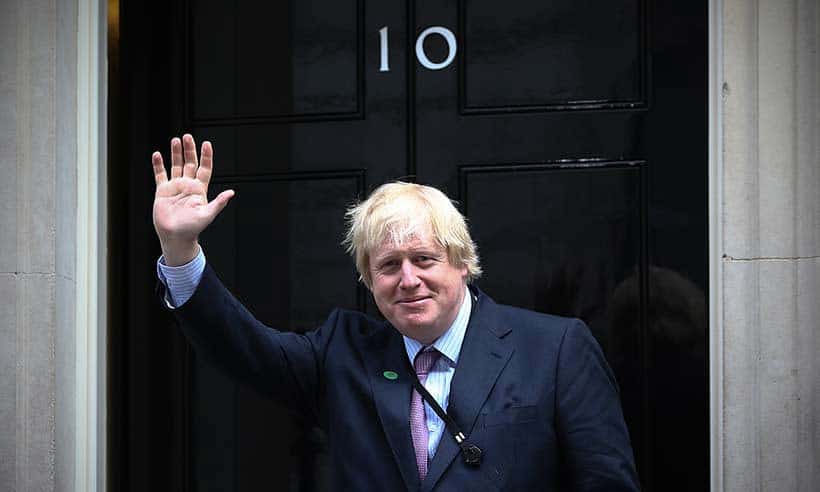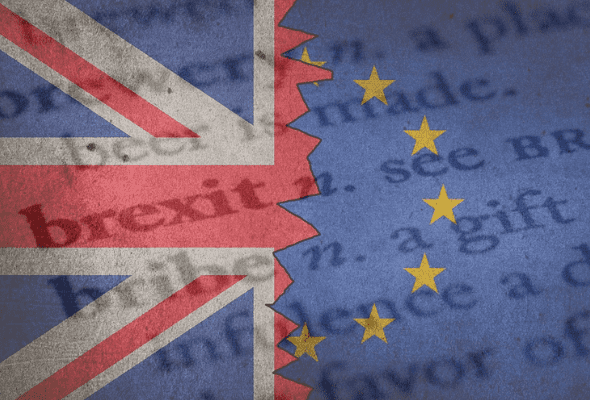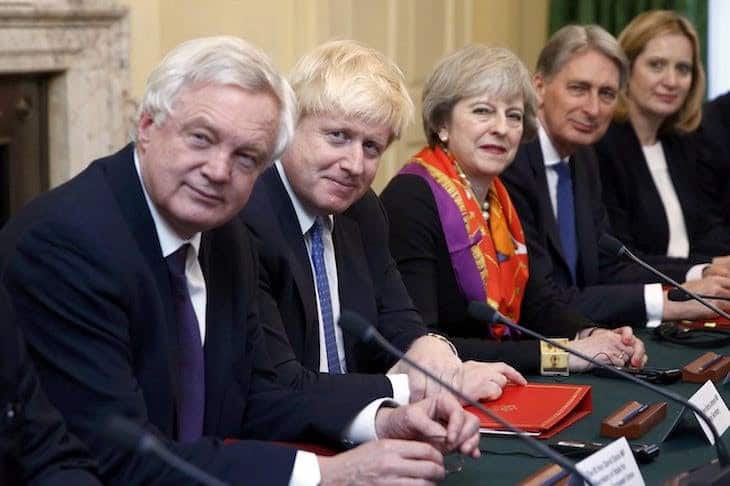PR and Brexit: How not to manage external communications

Last month, in an interview with ITV, former Prime Minister David Cameron admitted his decision to call for an EU referendum still haunts him. And given the sheer, unadulterated chaos that has ensued since the vote in June 2016, such regret is easy to understand; after all, the decision not only cost Cameron his job (even though he had said he would remain in power regardless of the outcome), but it’s also turned UK politics on its head.
To put some of the political mayhem into perspective, here are a couple of interesting stats. The first: since Theresa May was elected with a minority government in 2017, more than 70 MPs have changed party affiliation — including becoming independent or joining a new party. This is the same number as in the entire preceding two decades.
The second: between 1979 and 2017, only once did three ministers resign in the same 24-hour period (Humphrey Atkins, Lord Carrington, and Richard Luce, over the Falkland conflict). Between June 2018 and July 2019, it happened four times.
David Cameron, like the rest of the country, could not have predicted the torrent of shocks and surprises that would be thrown up by Brexit. It has seldom strayed from the front pages over the past three-and-a-half years; yet despite the volume of media coverage it has received, the UK public has often been left scratching its proverbial head wondering exactly what is happening.
Putting aside one’s personal views on Brexit (as much as is possible), it is hard to dispute that the whole event has been something of a PR disaster. Heads have metaphorically rolled, political parties have been divided into countless factions, and many reputations have been tarnished, some beyond repair.
At City Road Comms, we have been pondering over what PR lessons, then, can be learnt from the Brexit saga? And more specifically, based on what we’ve seen from the government’s communications strategy over the past three years (or lack thereof), what can businesses learn what it comes to maintaining support and trust during times of intense scrutiny?

Be clear, honest and transparent
If one thing has become apparent in the government’s handling of Brexit, it is the need for honesty and transparency when delivering external communications. This becomes all the more important when dealing with complicated or potentially unpopular matters.
In fact, this is a golden rule for virtually any effective PR and comms strategy. Audiences will not sit open-mouthed and swallow whatever lines you give them. Whether it is a newspaper quote, radio interview or press release, organisations must state their points clearly, but also offer information or opinions that are genuine and honest.
A failure to be truthful about events that are taking place, or relying too heavily on rhetoric and hyperbole, is an easy way for organisations to alienate an audience.
This is a point many people would relate to, with much of the frustration regarding Brexit stemming from a lack of understanding about what is happening. And in truth, even if there is bad news — or no news at all — the most effective option is often for organisations to be honest and say just that.
The same is true in any form of crisis communications; experience teaches us that people will be far more forgiving and, thereby, a brand’s reputation can be protected if an organisation is proactive in communicating the latest developments. What’s more, it must ensure when it does so that it is clear, honest and transparent in the message it delivers.

Avoid jargon
The goal of almost any PR and communications strategy is to effectively bridge the gap between an organisation and a particular audience (typically its customers). To achieve this, the language used within external comms must be as accessible as possible.
When it comes to Brexit, the government — and Westminster more generally — has failed. Most MPs have frequently used jargon within their political speeches, TV interviews and newspaper columns.
Backstop, no deal, transition period, WTO rules, divorce bill, withdrawal agreement — these new terms have entered our everyday lexicon since the EU referendum. So much so, in fact, that the BBC and many other media outlets have their very own “Brexit jargon buster” on their websites to help readers.
However, while admittedly hard to avoid, this jargon can hurt an organisation’s chances of winning trust and support from an audience. And again, this comes back to clarity in communications. If a person or group cannot easily understand what a person is saying and why they are saying it then it becomes difficult for them to offer their support.
Organisations and their spokespeople must try, as best they can, to remove themselves from the bubble in which they operate and ensure certain terms are either avoided or clarified.

Create a united front
Regardless of there being too little honesty and too much jargon, the most obvious flaw in the government’s Brexit communications strategy has been its inability to create a united front. Indeed, this has proved almost impossible due to the lack of consensus within the Conservative Party — let alone the House of Commons — regarding the desired Brexit outcome.
Nonetheless, there is a clear lesson to be learnt here: when there is a lack of a uniform “party line”, the scope for negative news is greatly increased.
From charity to startup, multinational business to government department, it is vital an organisation’s spokespeople are seen to be championing the same values. Not only will this ensure a particular message is clearly conveyed to an audience, but it also prevents contradictory statements appearing in the media — something that is certain to damage the reputation of a brand or company.
Even when people’s opinions or perspectives vary, a party line can still be achieved by making sure there is a core set of points — ideals, if you will — that unite the people within an organisation.
The government’s failure to create anything like a united front has fuelled the media’s portrayal of Brexit chaos. While such divisive events may not ever impact other businesses to the same degree, the need for a strong brand identity that is supported through a proactive, consistent PR strategy remains hugely important.

Considered, coherent PR strategies
It is all too easy to criticise the government’s handling of Brexit as an armchair pundit. It’s also unfair to take cheap shots at bestiality-related stories involving a former PM.
Ultimately, uniting a country divided (almost) down the middle while also negotiating a deal with Brussels and getting a majority of MPs to agree to it is perhaps the hardest task any Prime Minister has been faced with in recent times. Nevertheless, there is no question that businesses can learn some valuable lessons about PR and communications from the way political leaders have struggled with Brexit.
Businesses can be thankful that they will never face such scrutiny as Cameron, May and Johnson have. Yet the challenges involved in connecting with particular audiences, building trust and handling potentially negative news are ones that many leaders will face.
To overcome such challenges, businesses require a well-considered, coherent PR strategy. Moreover, as has hopefully been stressed here, clarity and uniformity in both the language and messaging they use are absolutely essential. Adopting such an approach will maximise the chances of a business’ communications being effective, in turn ensuring its overarching PR strategy is successful.

Dominic Pollard
Communications Director
About the author
With a history degree, journalism Master’s, and several years’ experience writing about business and technology for both the national and trade press, Dominic moved into the world of content marketing and comms in 2014. He joined City Road Comms in 2016, becoming the agency’s director of comms two years later. Dominic now oversees clients’ strategies and the overall operations of the agency.
Email


